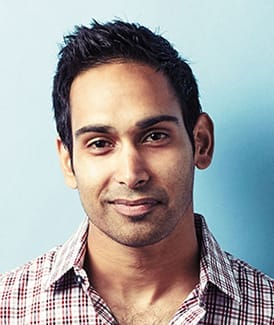A flower distribution company near Hoboken. A real estate startup in Manhattan. Another small business where I didn’t stick. Three years into my post-baccalaureate life, my career path was meandering. Like a lot of people in their early 20s, I felt underutilized and under-stimulated doing daily tasks that obscured deeper questions. Why were we doing what we were doing, and why did it feel disconnected from the economic principles I’d learned as an undergrad at Wharton?
In retrospect, the pull back to academia was inevitable. At the time, it felt like a lifeline. So I began taking the bus to Philadelphia for consumer-behavior seminars taught by one of my favorite professors, Americus Reed II. Less than two years later, in 2007, I was back at Wharton as a PhD candidate in the marketing department.
Something clicked when I realized that asking those questions could be a contribution in itself. As I explored how the psychology of decision-making compared to the tenets of economic theory, I began to wonder how the perspectives of psychologists, economists, businesspeople and consumers might benefit from each other. Everyone has a piece of the truth, and we can all help better understand our market society and the roles we play in it.
This approach has guided most of my ongoing research. My work examines how our moral beliefs and cultural assumptions shape our judgments and behaviors in the marketplace. For example: Why do many people perceive profit as fundamentally harmful to society, even as their consumption choices determine who benefits? And when do people view personal moral beliefs as more or less relevant to professional performance?
These sorts of questions lack easy answers but underlie much of our behavior. I’m confident that business practice can contribute to solutions for many of our thorniest social problems, but unlocking its potential is up to all of us. —Amit Bhattacharjee, assistant professor, Rotterdam
School of Management
Published as “The Call of the Classroom” in the Fall 2016 issue of Wharton Magazine.

























